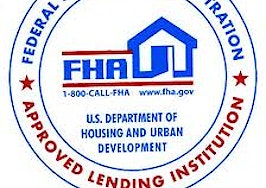Thanks to freakishly low interest rates, many homeowners with mortgages are able to make their monthly house payments using a much smaller percentage of their income than has been the historical norm, an analysis by Zillow shows.
But home prices are actually more expensive relative to median annual incomes than they were during the pre-boom years, which raises a troubling question: What happens when the economy improves and interest rates go up?
Because housing affordability is more highly dependent on interest rates than it has been in the past, when rates go up, home values will either have to remain stagnant while incomes catch up, or home values may even have to fall in some markets, said Stan Humphries, Zillow’s chief economist.
Some homebuyers could find themselves newly underwater if rising mortgage interest rates depress home values in their markets.
“Those buyers purchasing with little money down and high initial mortgage balances will be more at risk for slipping underwater if home prices fall marginally,” Humphries said. “Many homebuyers financing their purchase with a mortgage backed by the Federal Housing Administration can put down as little as 3.5 percent of the home price in down payment, and these buyers could be more susceptible to falling into negative equity even with modest home value declines.”
U.S. homeowners in the fourth quarter of 2012 devoted 12.6 percent of their median monthly incomes to mortgage payments, according to Zillow. That’s close to 37 percent more than homeowners paid from 1985 to 1999, Zillow says, when mortgages took up 19.9 percent of a typical homeowners’ median monthly income.
| % of monthly income for mortgage payments, 1985-1999 | % of monthly income for mortgage payments, Q4 2012 | Median home price to median annual income, 1985-1999 | Median home price to median annual income, Q4 2012 | |
| U.S. | 19.9% | 12.6% | 2.6 | 3.0 |
Source: Zillow
Zillow’s affordability index relies on home valuations generated by the portal’s home valuation algorithm (“Zestimates”). Zillow also lookes at rates on 30-year fixed-rate mortgage for the time periods studied, and median income data from the U.S. Census and the Bureau of Labor Statistics.
Zillow’s analysis also showed that home prices were more expensive relative to median annual incomes in the fourth quarter 2012 compared to the 1985-1999 pre-bubble period.
In the last quarter of 2012, median home prices were 3.0 times Americans’ median annual incomes, Zillow data showed. From 1985 to 1999, median prices were 2.6 times the median annual incomes.
So, Americans today are buying homes priced at higher proportions of their annual incomes than they were before the housing bubble. But their monthly payments are significantly lower thanks to very low interest rates.
Least affordable metros* in fourth quarter 2012
| Metro Area | % of monthly income for mortgage payments | Median home price to median annual income |
| U.S. | 12.6% | 3.0 |
| San Jose, Calif. | 29.5% | 7.0 |
| Los Angeles | 29.0% | 6.8 |
| San Francisco | 28.8% | 6.8 |
| San Diego | 25.0% | 5.9 |
| New York | 21.9% | 5.2 |
*Among the 30 largest metros Zillow tracked. Source: Zillow.
Mortgage rates have been low during the downturn because the mortgage-backed securities (MBS) that today fund about 90 percent of U.S. home loans have been in demand from investors seeking a safe place to park their money. The Federal Reserve has also helped keep interest rates low by buying up hundreds of billions of dollars in MBS and long-term Treasurys.
As the economy picks up, the Fed will scale back and eventually end its “quantitative easing” program, and investor demand for MBS is also expected to fall. That will push MBS prices down, and yields up. Mortgage rates will follow.
In a March 28 forecast, economists at Fannie Mae said they expect rates on 30-year fixed-rate mortgages — which averaged 3.5 percent during January, February and March — to climb to an average of 4.0 percent during the final three months the year. Fannie Mae’s forecast sees rates continuing a gradual rise to an average of 4.5 percent during the fourth quarter of 2013.
If the economic recovery stalls, rates could stay in the basement. But if it picks up steam, some analysts expect mortgage rates to increase even more in the months ahead.
Any increase in mortgage rates might mean homebuyers would have to lower their sights, and consider less expensive homes. A 1 percentage point increase in mortgage rates reduces a homebuyer’s purchasing power by about 10 percent.
But there’s some debate over how much of an impact mortgage rates have on home prices. In the past, the correlation between mortgage rates and home prices has not been that strong, The Atlantic reported after talking to two prominent housing economists.
“What matters most,” Humphries said, “is that prospective homebuyers look at their home as a long-term purchase.”
“It’s tempting to look at rapidly rising values in some areas and think that kind of appreciation will continue indefinitely,” he said. “But buying primarily with the intention of selling a few years down the road and reaping a big windfall is a recipe for disaster – ask those who bought in 2006 or 2007.”
Most affordable metros* in fourth quarter 2012
| Metro Area | % of monthly income for mortgage payments, 1985-1999 | % of monthly income for mortgage payments in Q4 2012 |
| U.S. | 12.6% | 3.0 |
| Detroit | 6.5% | 1.5 |
| Atlanta | 8.1% | 1.9 |
| Dallas | 9.3% | 2.2 |
| Cincinnati | 9.6% | 2.3 |
| Pittsburgh | 9.7% | 2.3 |
| Cleveland | 9.7% | 2.3 |
*Among the 30 largest metros Zillow tracked. Source: Zillow.






